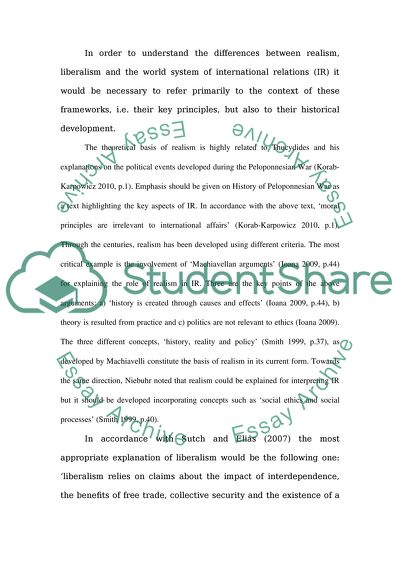Cite this document
(“Differences between Realism Liberalism and World System View of Essay”, n.d.)
Retrieved from https://studentshare.org/sociology/1437750-discuss-the-most-important-differences-between
Retrieved from https://studentshare.org/sociology/1437750-discuss-the-most-important-differences-between
(Differences Between Realism Liberalism and World System View of Essay)
https://studentshare.org/sociology/1437750-discuss-the-most-important-differences-between.
https://studentshare.org/sociology/1437750-discuss-the-most-important-differences-between.
“Differences Between Realism Liberalism and World System View of Essay”, n.d. https://studentshare.org/sociology/1437750-discuss-the-most-important-differences-between.


